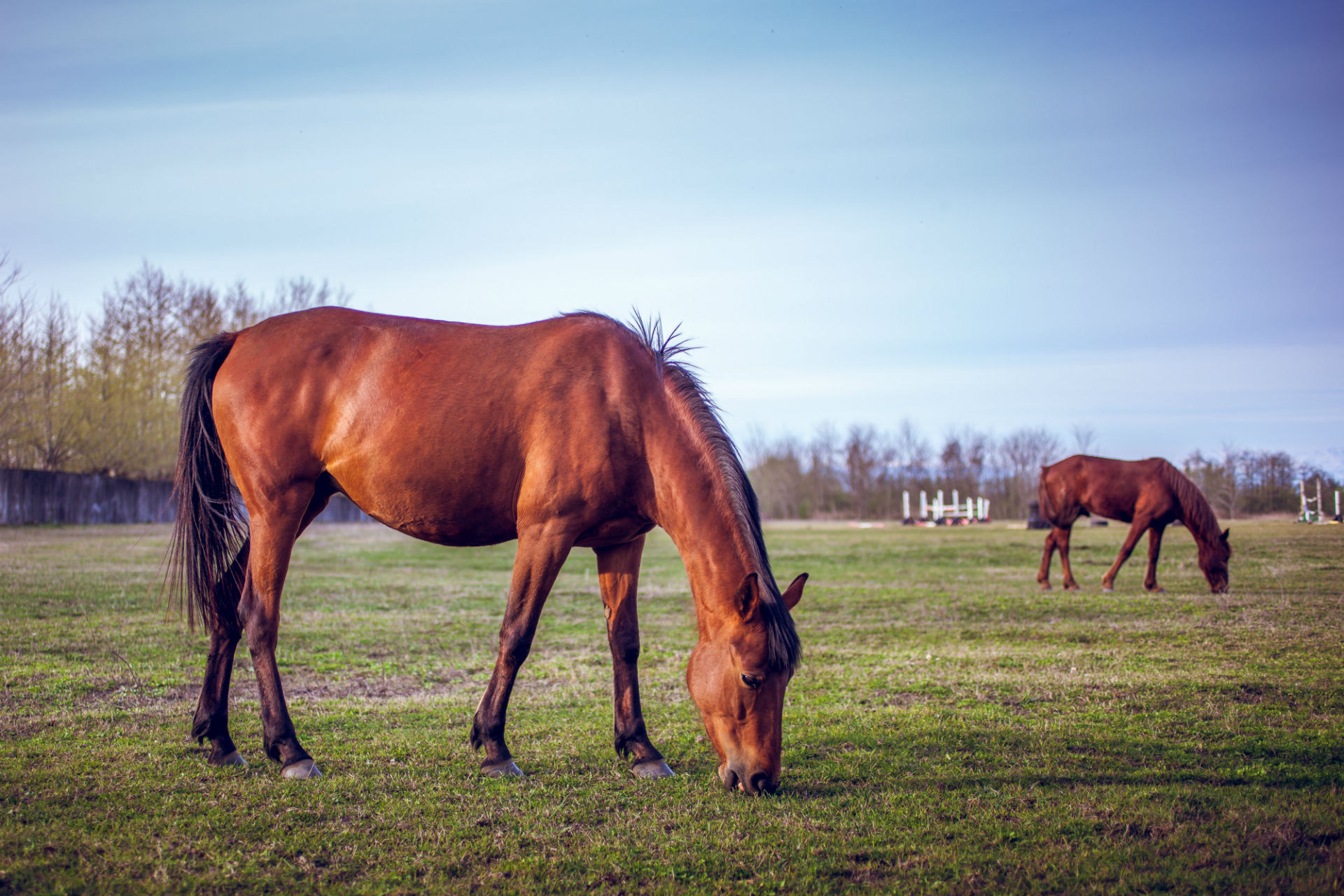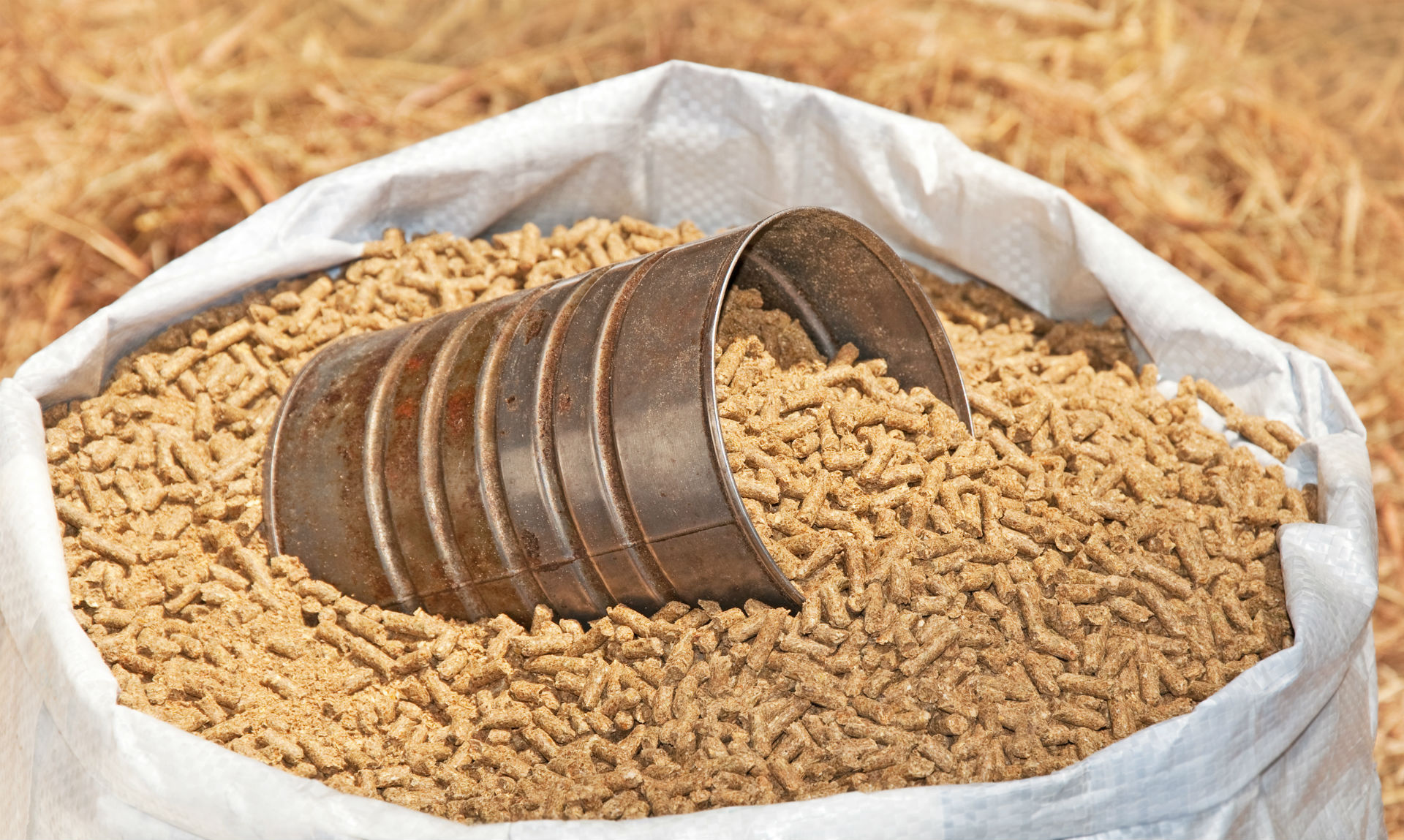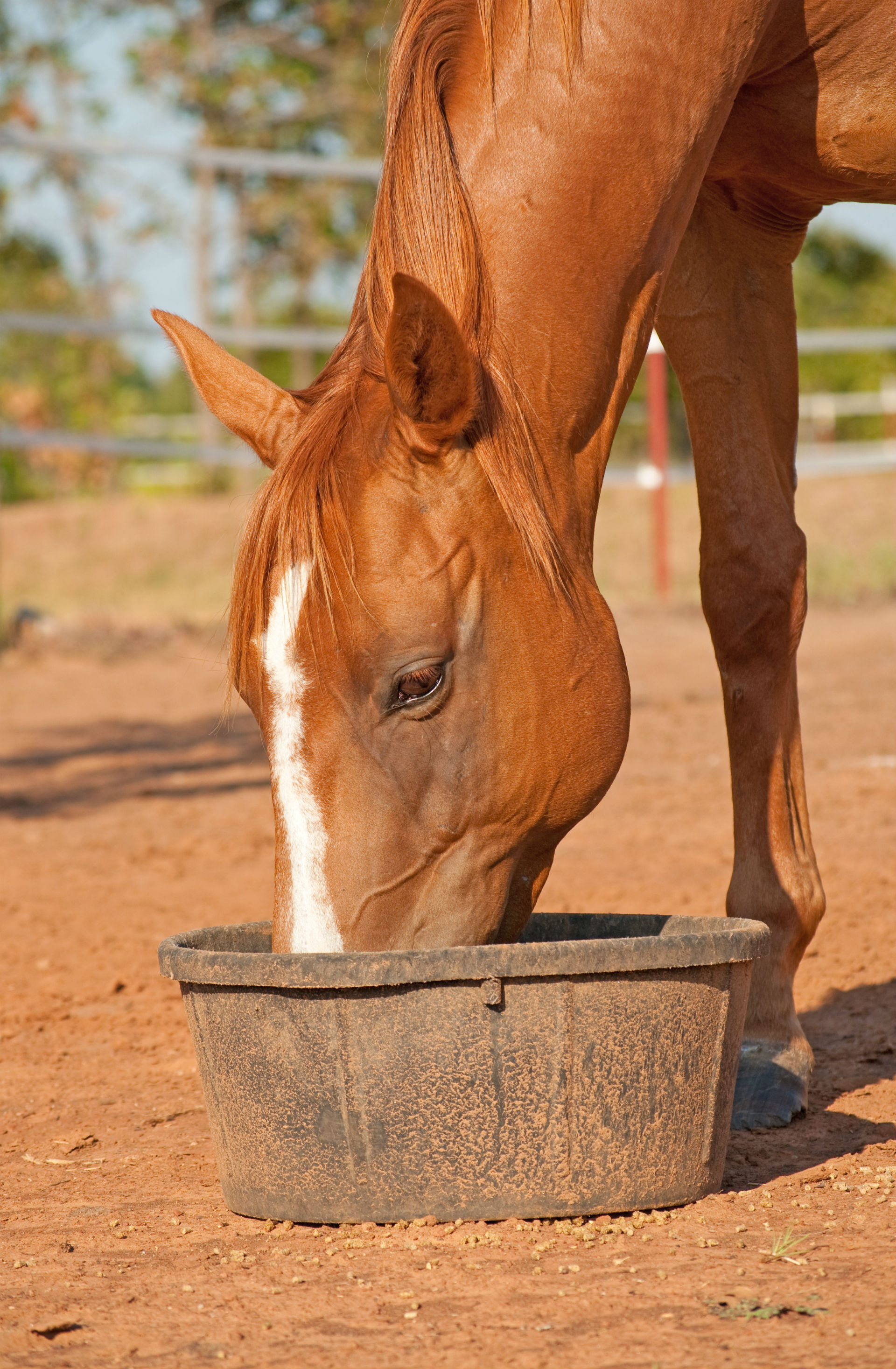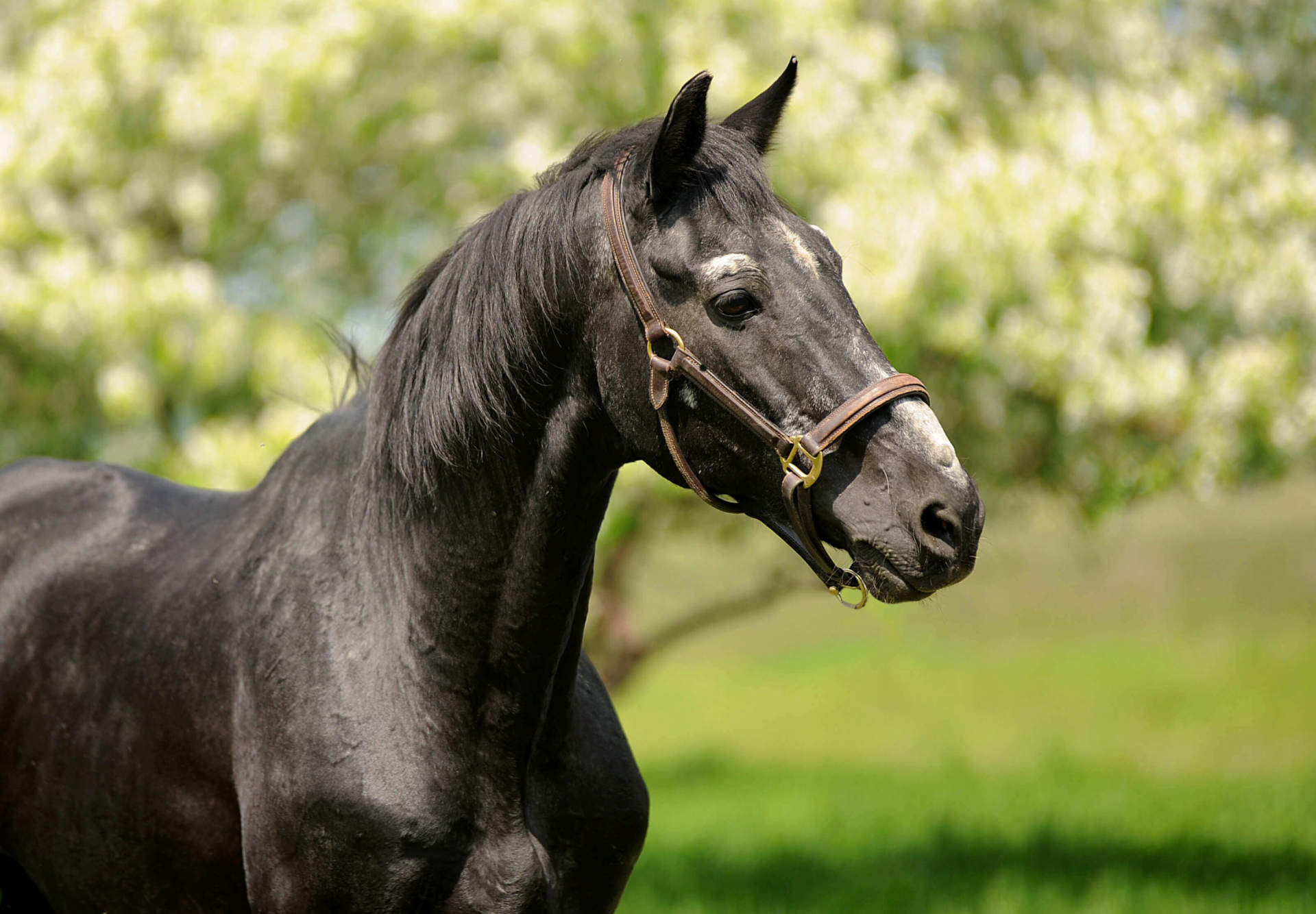Managing the Perpetual Hard Keeper
There is certainly no shortage of weight management questions in horses. Most of the time the discussions revolve around topics for overweight horses and how to manage their weight control, but what about the otherwise seemingly healthy horse that just can’t keep weight on? The perpetual ‘hard keeper’ can drive horse owners crazy with how to add and keep weight on their horse. So, what can you do?

Identify the Reason
There can be many reasons for your horse’s lack of weight gain, so the first step is to look at some possible causes. Start by thoroughly assessing your horse’s body condition score, so you can determine his starting point and track your progress. Weekly checks with a weight tape can also give you objective progress reports. Once you have a good idea of your horse’s current weight and condition, you can begin exploring the potential causes of his weight loss. There are several factors to consider: physical demands, medical, social and environmental.
Physical Demands
One of the most common reasons for equine weight loss is a high caloric demand and not enough feed (calories) to maintain body condition. Performance horses, racehorses, growing horses and lactating mares often fall in this category due to their high caloric requirements. Mares in early lactation require about 1.8-2.0 times more energy compared to her normal maintenance requirement. The National Research Council (2007) provides the average digestible energy (DE) requirements for an 1,100 lb. horse in different scenarios:
|
Type of Work |
DE Mcal |
|
Adult maintenance |
16.7 Mcal |
|
Working/Training – Light |
20.0 Mcal |
|
Working/Training – Moderate |
23.3 MCal |
|
Working/Training – Heavy |
26.6 MCal |
|
Working/Training – Intense |
34.5 MCal |
|
Lactating Mare – 1-3 months |
31.7-30.6 MCal |
|
Lactating Mare – 4-6 months |
29.4-27.2 MCal |
Medical
There are certain medical reasons that could cause your horse to lose weight or stay at a low body condition score, so it’s important to start with a complete medical examination of your horse, especially if he used to be a fairly easy keeper and is now having trouble keeping weight on. Have your veterinarian perform a physical examination, including a blood work-up, full dental exam and fecal analysis. If these results show a medical concern that is affecting your horse’s weight, discuss a plan of action or diet change with your veterinarian.
Another medical concern that may affect your horse’s weight, is his metabolism. Some horses, like Thoroughbreds or Arabians, have a naturally high metabolism and will often burn off calories nearly as fast as you throw them into the feed bucket. This is especially true if your individual horse tends to be a bit “high strung” and nervous, as he will likely burn calories more rapidly. Certain stable vices, such as weaving or stall walking will also burn more calories. A suggested change in diet or increase in feed may be in order.

Social
Be aware of the social hierarchy among your horses if they are turned out together, especially if one of your horses is being bullied or kept away from feed. A horse with low social standing in the pecking order may not be getting enough to eat while another horse is hogging more than his fair share. In this case, you may need to change your horse’s pasture mates, ensure hay is well spread throughout the pasture to allow the more timid horse the opportunity to eat or make sure he gets some extra feed when he’s alone in his stall.
Enviormental
Some basic environmental factors, such as weather, may also be affecting your horse’s weight. In extreme heat or cold climates, horses can burn extra calories to maintain their body temperature. In hot weather, a horse will burn extra calories by excessive sweating during exercise and fighting off the files, gnats and mosquitoes that are interrupting his eating. It’s best to try to keep your horse cool and the flies at bay with proper fly control management. In cold weather, a thinner horse may burn extra calories to keep warm, so prevent this by ensuring he has an enclosed cover in his pasture, covering him with a blanket or is brought inside the barn.
Choose the Proper Diet
Once you have determined the root cause of your horse’s weight loss, you can begin evaluating and changing his diet. There are a few elements of your horse’s diet that can be adjusted, depending on what your horse needs to gain and maintain weight.
Forage
Increasing the forage in your horse’s diet is generally a safe way to get more fuel into your horse. Because he relies very heavily on grass and hay for his daily feed input, it’s important to give him top-quality forage. You can usually arrange for a forage analysis through your local cooperative extension. For more information about common feed profiles, or to have your own hay assessed, visit www.equi-analytical.com.
When it comes to forage, hay is a great place to start. No matter what type of hay you feed (legume, grass or mixed), look for hay with a high ratio of leaves to stems. Leaves contain more nutrients, while stems are mostly fiber. Though horses need plenty of fiber, a horse struggling to gain and maintain weight needs to focus on digestible calories. The type and quality of your hay can also impact the digestible energy. Generally, legumes (i.e.: alfalfa) are higher in protein and digestible energy than grass, although some horses can get by on adequate amounts of grass hay.
Hay, pellets, cubes and beet pulp can be added to your horse’s diet with minimal risk to his digestive tract. More time in the pasture can also help, but be sure that your pasture is well maintained, as lush grass can increase the risk of metabolic health concerns.

Grain or Commercial Feeds
Adding a commercial feed or grain to your horse’s diet is a simple way to help him add weight. There are several feeds on the market that are nutritionally balanced and specifically formulated to provide additional calories for performance horses or horses in various life stages, like pregnant or lactating mares, growth and senior horses. If you opt to add a commercial feed to your horse’s diet, consult with your veterinarian or equine nutritionist to make sure you’re choosing the one that’s best for your horse’s needs.
Adding carbohydrates, such as corn or oats, is another good way to increase caloric intake; however, it’s important to be aware of the problems that too much grain can cause. Feeding high amounts of corn or oats can lead to changes in your horse’s intestinal bacteria and cause digestive disturbances. Some forms of grain are not extremely digestible, so your horse won’t get the maximum benefit. Switch to rolled or crimped oats, rolled or cooked barley, or processed corn for increased digestibility.
Fats and Oils
Another good way to increase the caloric intake without increasing the amount of forage or grain is to add a fat source to your horse’s diet. A basic nutrition fact that comes into play when discussing weight is the amount of calories in food types. On average, fats contain 2.25 times more digestible energy than proteins or carbohydrates. By adding fats to your horse’s diet, it will give you a lot more bang for your buck.
Rice bran and flaxseed are commonly used fat sources for horses. Rice bran has the added advantage of providing some fiber in addition to the extra fats, but must be stored and processed carefully to avoid rancidity. In order to reap the full benefits of flaxseed, it should be ground into the feed rather than fed whole. To prevent flaxseed from going rancid, make sure to grind up before each feeding and avoid soaking in water.
Canola oil is another fat source that you can easily add to your horse’s concentrate rations. Canola oil has an ideal omega-6 to omega-3 ratio of 2:1. When feeding an oil, start small; ¼ cup per day is plenty for an adult horse. Use less if you happen to have an underweight miniature horse or pony. After a week or two, you can gradually add another ¼ cup if needed. Most nutritionists recommend no more than 2 cups total per day for the average adult horse.

There are also several weight supplements on the market that you can investigate if you would like other options. Weight supplements usually contain multiple sources of fat to give your horse the maximum benefit. If your horse is already on a fat supplement for coat care or other reasons, consult your veterinarian or nutritionist before adding rice bran or flaxseed to be sure you aren’t overdoing it. If your horse develops diarrhea or gets an oily sheen to his manure, you’ll need to cut back on the oil a bit.
Remember to take your time and make any feed changes, whether it’s forage, grain or fats, gradually, since abrupt changes can cause digestive complications. Anticipate your “diet makeover” taking two to four weeks to complete. Putting weight on a hard keeper is a challenge, but with just the right combination of fats, forage and concentrates, your horse should begin to gain and keep enough weight for a happy, healthy lifestyle.
RESOURCE:
https://www.habitatforhorses.org/the-henneke-body-condition-scoring-system/
E-mail Signup
Sign up for our newsletter to get helpful horse care tips, product updates, special offers and more.
Subscribe

